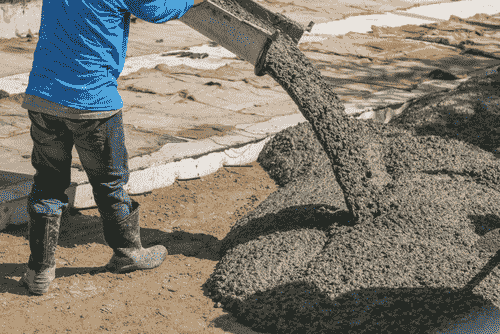Top Concrete Professionals: Reputable and Expert Concrete Job
Top Concrete Professionals: Reputable and Expert Concrete Job
Blog Article
Revealing the Eco-Friendly Advantages of Using Recycled Concrete in Sustainable Construction Practices
In the realm of lasting construction methods, the utilization of recycled concrete stands as a crucial yet commonly underestimated source. Past its traditional applications, recycled concrete offers a myriad of environment-friendly advantages that expand far beyond the boundaries of standard building and construction materials. From decreasing ecological influence to enhancing cost-efficiency, the ramifications of including recycled concrete in sustainable structure techniques are significant. This functional material not just addresses pushing ecological issues but additionally presents a feasible solution to the difficulties faced by the building sector at large.
Environmental Advantages
By integrating recycled concrete into building techniques, there is a substantial reduction in the demand for new raw materials, leading to conservation of natural resources. In addition, the usage of recycled concrete reduces the quantity of waste being sent to land fills, therefore decreasing ecological air pollution and easing the stress on landfill abilities (Concrete).

In comparison, recycled concrete has a lower carbon impact as it reduces the need for new concrete production. Generally, the environmental benefits of making use of recycled concrete are considerable and play an essential role in promoting environmentally friendly building techniques.
Cost-Efficiency
Accomplishing cost-efficiency is a critical consideration when assessing the application of recycled concrete in construction projects. One of the essential benefits of using recycled concrete is its cost-effectiveness compared to traditional concrete.
Moreover, the usage of recycled concrete can lead to cost savings in landfill expenses by diverting concrete waste from disposal sites. This not just lowers the ecological impact but also gets rid of the prices associated with waste removal. Additionally, the longevity and performance of recycled concrete approach conventional concrete, making certain that cost savings do not compromise the high quality of the building and construction.
Toughness and Strength
Thinking about the considerable cost-efficiency benefits of utilizing recycled concrete, it is critical to examine its toughness and toughness in construction applications. Recycled concrete offers equivalent, otherwise exceptional, longevity and stamina residential properties to traditional concrete. Via advancements in processing methods and high quality control, recycled concrete can satisfy or surpass the performance criteria of traditional concrete. The procedure of recycling concrete includes squashing, arranging, and screening old concrete to produce aggregates that can be utilized in brand-new building and construction jobs. These recycled aggregates are qualified of providing acceptable compressive stamina, toughness, and long-term efficiency.

Waste Decrease
When it comes to making use of recycled concrete, waste decrease is a key advantage that adds dramatically to environmental preservation. By including recycled concrete right into building and construction jobs, this waste is repurposed and diverted from land fills, reducing the total ecological influence of building tasks.
In addition, the usage of recycled concrete can lead to set you back financial savings for construction projects, as it is usually a lot more cost effective than sourcing and carrying brand-new products - Concrete. In conclusion, waste decrease via the use of recycled concrete is an essential component of sustainable construction methods that profits both the environment and the construction market as a whole.
Power Preservation
When it comes to making use of recycled concrete in building and construction, substantial energy financial savings are achieved contrasted to traditional concrete production. The process of creating recycled concrete includes reusing and crushing existing concrete products, which takes in less energy than mining, handling, and carrying raw products for brand-new concrete production.
Conclusion
In conclusion, the application of recycled concrete in sustainable building and construction practices supplies various environmental advantages, cost-efficiency, my website longevity, toughness, waste reduction, and power preservation. By integrating recycled concrete into building and construction projects, we can add to a more sustainable and eco friendly future. It is essential for the building market to official website prioritize using recycled products to help decrease the environmental influence of building tasks.
One of the crucial benefits of using recycled concrete is its cost-effectiveness compared to conventional concrete.Additionally, the usage of recycled concrete can lead to financial savings in land fill prices by diverting concrete waste from disposal websites. The longevity and performance of recycled concrete are similar to traditional concrete, ensuring that price savings do not jeopardize the top quality of the building and construction.

Report this page